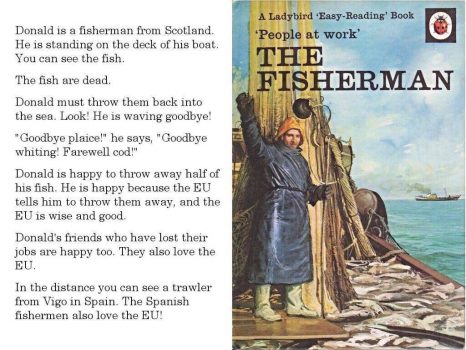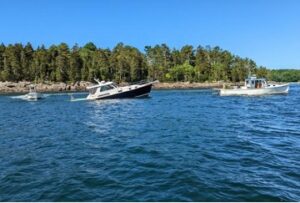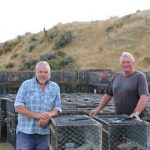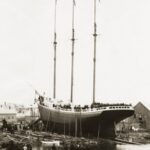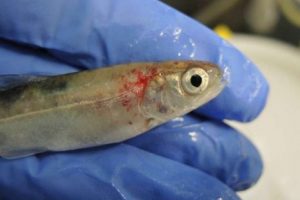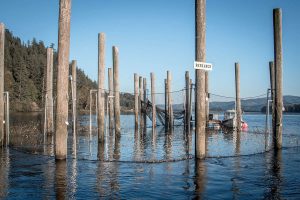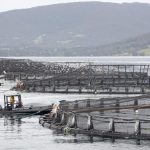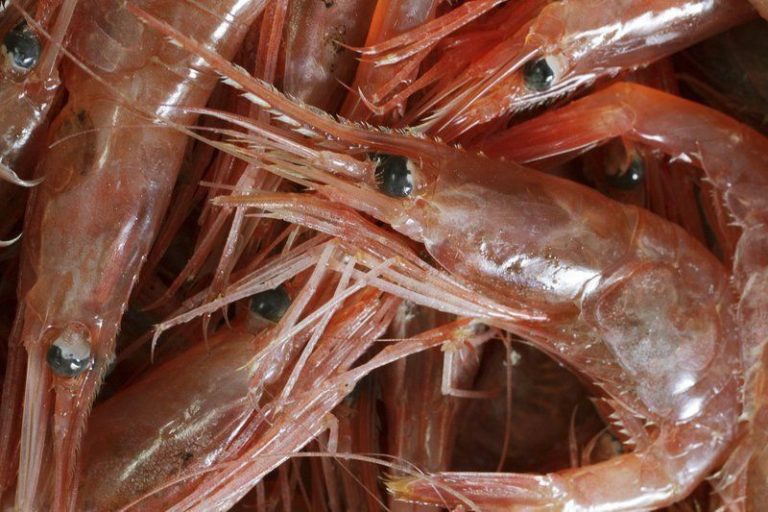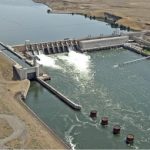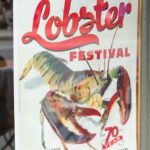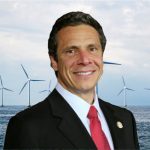Daily Archives: June 7, 2016
EU referendum: Would Scotland’s fishermen be better in or out?
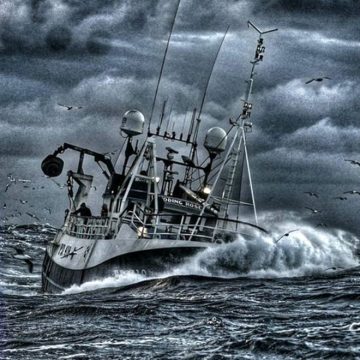 The fishing industry plays a key role in the economy of the North East of Scotland. Ahead of the EU referendum on 23 June, I spoke to two different camps of opinion-Ken Banks. “I have not met a local fisherman yet who would not pack his bags and leave the EU.” The words of Jimmy Buchan – skipper of Peterhead’s Amity II who featured in the BBC’s Trawlermen series. He has worked at sea since leaving school in 1976. The 55-year-old’s feelings on the forthcoming referendum on whether the UK should stay in the EU are clear – leave in a bid to secure a future for fishermen. The Aberdeenshire town of Peterhead is Europe’s largest white fish port, so the topic could hardly be more crucial. The Scottish government believes that EU membership is in the “best interests” of Scotland’s fishing industry. Read the rest here 19:21
The fishing industry plays a key role in the economy of the North East of Scotland. Ahead of the EU referendum on 23 June, I spoke to two different camps of opinion-Ken Banks. “I have not met a local fisherman yet who would not pack his bags and leave the EU.” The words of Jimmy Buchan – skipper of Peterhead’s Amity II who featured in the BBC’s Trawlermen series. He has worked at sea since leaving school in 1976. The 55-year-old’s feelings on the forthcoming referendum on whether the UK should stay in the EU are clear – leave in a bid to secure a future for fishermen. The Aberdeenshire town of Peterhead is Europe’s largest white fish port, so the topic could hardly be more crucial. The Scottish government believes that EU membership is in the “best interests” of Scotland’s fishing industry. Read the rest here 19:21
BC Fisheries Workers Demand Rule Changes From Federal Government
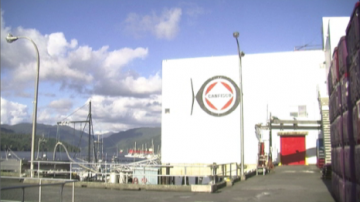 Representatives of BC shoreworkers and commercial license holders are in Ottawa today, demanding changes to federal legislation in order to save fish processing jobs on the North Coast. They want Ottawa to require local processing and individual licence ownership — which has become a huge issue in the wake of last November’s announcement by Canfisco that it was shutting down its Prince Rupert cannery – resulting in hundreds of job losses. Skeena-Bulkley Valley MP Nathan Cullen says there’s a lot riding on the meeting. He says coastal communities are being devastated by federal policies which allow North Coast fish to be processed in China and Alaska — and which permit nearly 80 per cent of commercial licences to be bought up by large corporations. Read the press release here 18:32
Representatives of BC shoreworkers and commercial license holders are in Ottawa today, demanding changes to federal legislation in order to save fish processing jobs on the North Coast. They want Ottawa to require local processing and individual licence ownership — which has become a huge issue in the wake of last November’s announcement by Canfisco that it was shutting down its Prince Rupert cannery – resulting in hundreds of job losses. Skeena-Bulkley Valley MP Nathan Cullen says there’s a lot riding on the meeting. He says coastal communities are being devastated by federal policies which allow North Coast fish to be processed in China and Alaska — and which permit nearly 80 per cent of commercial licences to be bought up by large corporations. Read the press release here 18:32
North Carolina Fisheries Association Weekly Update for June 6, 2016
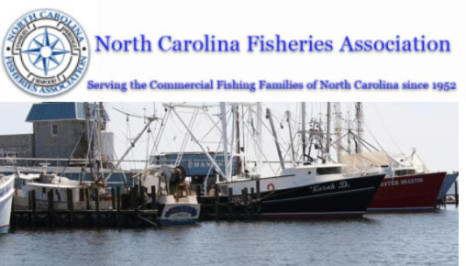 Click here to read the Weekly Update, to read all the updates, Click here 16:26
Click here to read the Weekly Update, to read all the updates, Click here 16:26
Rep. Lamar Smith has valid reasons for investigating NOAA
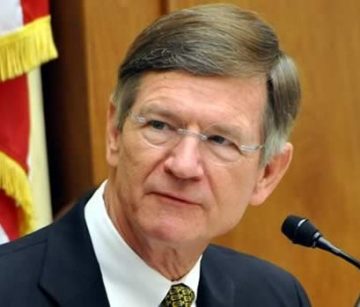 Reading the news lately, one might think that Rep. Lamar Smith (R-TX) is some sort of backwards character from the 19th century, a “member of the Flat Earth Society.” So great is the venom directed at him that the UK’s Guardian has referred to him as a “Witch Hunter.” But what exactly is Smith’s crime? Under his authority as chairman of the House Science, Space and Technology Committee, he’s chosen to investigate the research methods of the taxpayer-funded National Oceanic and Atmospheric Administration (NOAA). Last year, NOAA released a study that found there has been no “pause” in recent global warming. Because the findings contradict every other set of observed data on global temperatures, and were issued ahead of the Paris Climate summit, Smith wants to know if political bias factored into the report’s formulation. Adding weight to Smith’s inquiry was the subsequent publication of a study in Nature Magazine that disagreed with the NOAA report, saying the observed “slowdown” in warming is real, and occurred at a time when carbon dioxide emissions have been rising steadily. Because Smith has chosen to investigate the means by which NOAA reached its conclusions, however, he has been accused of holding “anti-science” views and trying to “intimidate” the scientific community. Read the rest here 15:51
Reading the news lately, one might think that Rep. Lamar Smith (R-TX) is some sort of backwards character from the 19th century, a “member of the Flat Earth Society.” So great is the venom directed at him that the UK’s Guardian has referred to him as a “Witch Hunter.” But what exactly is Smith’s crime? Under his authority as chairman of the House Science, Space and Technology Committee, he’s chosen to investigate the research methods of the taxpayer-funded National Oceanic and Atmospheric Administration (NOAA). Last year, NOAA released a study that found there has been no “pause” in recent global warming. Because the findings contradict every other set of observed data on global temperatures, and were issued ahead of the Paris Climate summit, Smith wants to know if political bias factored into the report’s formulation. Adding weight to Smith’s inquiry was the subsequent publication of a study in Nature Magazine that disagreed with the NOAA report, saying the observed “slowdown” in warming is real, and occurred at a time when carbon dioxide emissions have been rising steadily. Because Smith has chosen to investigate the means by which NOAA reached its conclusions, however, he has been accused of holding “anti-science” views and trying to “intimidate” the scientific community. Read the rest here 15:51
Diane Hill is the chief and (so far) only seamstress for Bristol Bay Brailers, LLC, a new business in Naknek.
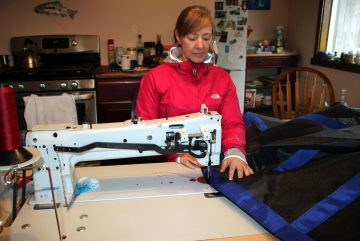 While fishermen tune up their boats, there are many other workers also gearing up for the salmon season. Welders, net hangers, and cannery workers are all streaming in to support the industry. This year, a Naknek family has established another piece of that fishery puzzle: a homegrown brailer operation called Bristol Bay Brailer, LLC. Hill is the manager and chief-and-only seamstress of Bristol Bay Brailer, LLC. Her husband, Bill Hill, his two brothers Nathan and Karl, and their business partner Russell Phelps co-own the company. They’re all fishermen, and Hill says they’d been talking for years about the need for locally produced brailers. “We were like, why don’t we make brailers here? We’ve been buying them from other places, but we’re in the heart of fishing, so why don’t we buy them here?” Audio, read the story here 14:11
While fishermen tune up their boats, there are many other workers also gearing up for the salmon season. Welders, net hangers, and cannery workers are all streaming in to support the industry. This year, a Naknek family has established another piece of that fishery puzzle: a homegrown brailer operation called Bristol Bay Brailer, LLC. Hill is the manager and chief-and-only seamstress of Bristol Bay Brailer, LLC. Her husband, Bill Hill, his two brothers Nathan and Karl, and their business partner Russell Phelps co-own the company. They’re all fishermen, and Hill says they’d been talking for years about the need for locally produced brailers. “We were like, why don’t we make brailers here? We’ve been buying them from other places, but we’re in the heart of fishing, so why don’t we buy them here?” Audio, read the story here 14:11
US and Canada reject Sweden’s call for lobster ban
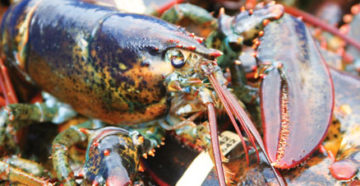 Canada and the United States on Monday rejected Swedish calls for a ban on imports of live American lobsters, saying fears of an invasive species displacing its European cousin are unsubstantiated. Speaking for both countries, Steven Wilson, a deputy director of the National Oceanic and Atmospheric Administration (NOAA), told a news conference that Swedes had “found some evidence that there are lobsters in their waters”. “But those lobsters could not thrive and could not rise to a population that could either pass disease or overcome the native species,” he said. Current evidence points only to lobsters escaping, not a full blown invasion, he added. “There just isn’t enough scientific information that gives you the impression that this is something that could take hold , which is important in the invasive-species standard internationally,” Read the rest here 11:24
Canada and the United States on Monday rejected Swedish calls for a ban on imports of live American lobsters, saying fears of an invasive species displacing its European cousin are unsubstantiated. Speaking for both countries, Steven Wilson, a deputy director of the National Oceanic and Atmospheric Administration (NOAA), told a news conference that Swedes had “found some evidence that there are lobsters in their waters”. “But those lobsters could not thrive and could not rise to a population that could either pass disease or overcome the native species,” he said. Current evidence points only to lobsters escaping, not a full blown invasion, he added. “There just isn’t enough scientific information that gives you the impression that this is something that could take hold , which is important in the invasive-species standard internationally,” Read the rest here 11:24
South Atlantic Fishery Management Council propose changes to Yellowtail Snapper fishery
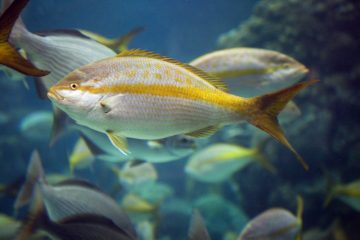 The change comes following requests from a group of Florida Keys fishermen, as yellowtail snapper are primarily harvested in the Keys. The commercial yellowtail fishery was closed in October in 2014, after National Marine Fisheries Service projected the fishery would meet its annual catch limit of 1.6 million pounds. The fishermen want the season to end in July when there is less fishing pressure and the fish are spawning, said Bill Kelly, executive for the Florida Keys Commercial Fishermen’s Association. “The closure should occur when prices are at their lowest and demand is at its lowest,” Kelly said. “Also, the season should be closed when the fish is spawning.” In addition, commercial fishermen have lobbied to reallocate some of the recreational catch to the commercial side, as the recreational side has only caught a little more than half of its 1.4 million pound annual limit, according to federal fishery managers. Read the rest here 08:40
The change comes following requests from a group of Florida Keys fishermen, as yellowtail snapper are primarily harvested in the Keys. The commercial yellowtail fishery was closed in October in 2014, after National Marine Fisheries Service projected the fishery would meet its annual catch limit of 1.6 million pounds. The fishermen want the season to end in July when there is less fishing pressure and the fish are spawning, said Bill Kelly, executive for the Florida Keys Commercial Fishermen’s Association. “The closure should occur when prices are at their lowest and demand is at its lowest,” Kelly said. “Also, the season should be closed when the fish is spawning.” In addition, commercial fishermen have lobbied to reallocate some of the recreational catch to the commercial side, as the recreational side has only caught a little more than half of its 1.4 million pound annual limit, according to federal fishery managers. Read the rest here 08:40
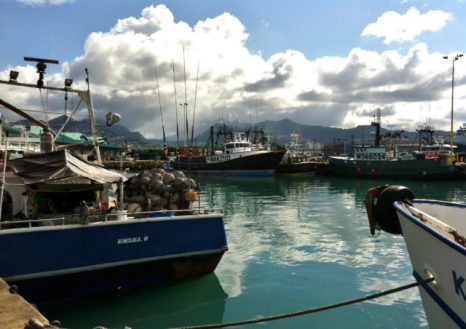
Would Hawaii Marine Monument Expansion Hurt The Tuna Industry?
Conservationists and others are crying foul over letters that state lawmakers recently sent President Obama that urged him to not consider expanding the Northwestern Hawaiian Islands Marine National Monument. They’re specifically concerned about the numbers used to justify opposition, calling the estimated $7 million financial hit to the longline tuna fishing industry misleading at best. “It’s just a false logic to suggest that a mobile fishery resource has to be fished in this particular location,” said David Henkin, staff attorney for Earthjustice, a nonprofit environmental law organization. “You’re talking about catching fish,” Henkin said. “You’re not cutting down trees. You’re not mining for gold.” Representatives of the longline fishing industry say it’s not so much about how much money from ahi they would potentially lose if the monument is expanded as it is about the government further limiting the places they can fish. “The fact of the matter is that we continue to be squeezed out of traditional areas,” said Sean Martin, president of the Hawaii Longline Association. Read the story here 08:04






